

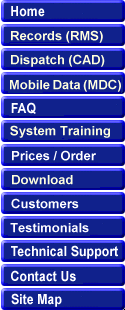
The Incident Module is the heart and soul of any law enforcement records management system. This module is designed to capture information found on a typical crime or incident report. The CrimeStar incident module offers a unique blend of simplicity and attention to detail.
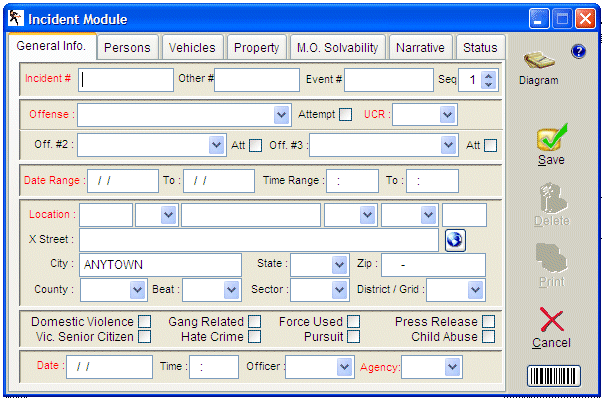
The CrimeStar Incident Module Captures the basic Who, What, When, Where and Why
information in a few simple pages on a single form. An incident report can
articulate the elements of several different crimes. On this form we
capture the primary or most significant offense and indicate the most applicable
Uniform Crime Report (UCR) code for the offense. Since
CrimeStar RMS is FBI NIBRS compliant, additional data sub-screens become
available as needed. After indicating some of the
basic incident information such as date, time, location and other
geographic information you can then capture information about all the
people, vehicles and property / evidence associated with the incident.
Optionally an Incident Diagram can be linked to the
Incident. All individuals or businesses listed on the Persons Page
have an associated Involvement or relation to the Incident (Victim, Suspect,
etc.) and are automatically linked to the Master Name Index.

The vehicle page documents all vehicles associated with the incident report
including those that were stolen, recovered, stored or impounded. All
associated vehicles are linked to the Master Vehicle Index.
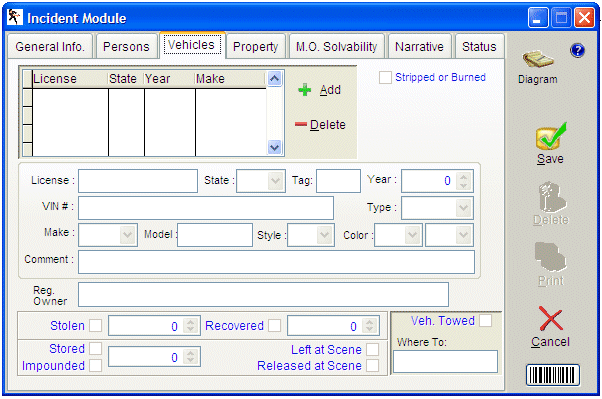
The Incident Module has the ability to capture customizable Modus Operandi (MO)
information and also offers a Solvability Factor rating system. The
Solvability rating system permits the consistent assignment of numeric
values to a series of known solvability factor questions. An example of such a question
might be "Is there a witness to the Crime?". Yes answers to these
questions result in the predefined value being summed to create a total
solvability value. This value can then be used as a basis for sorting or
filtering incidents prior to assignment to investigative personnel.
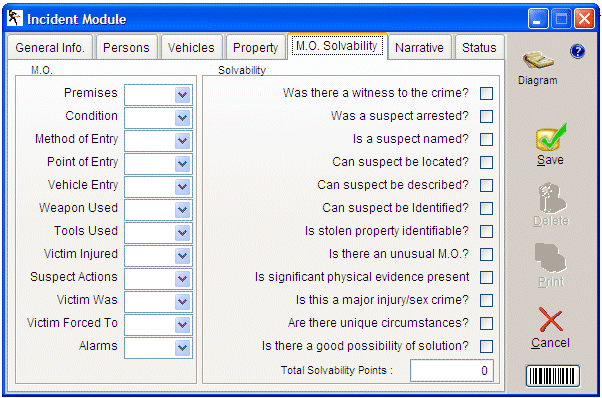
The module permits the entry of 3 types of narrative to be associated with each
incident.. The standard unlimited report narrative, Synopsis
narrative which appears on the first page of the printed Incident to provide a
quick overview of what happened, and a Press Release narrative which if entered
will appear on the press release report instead of the Synopsis narrative. A
forms of incident narrative can be spell checked with the click of a
button.
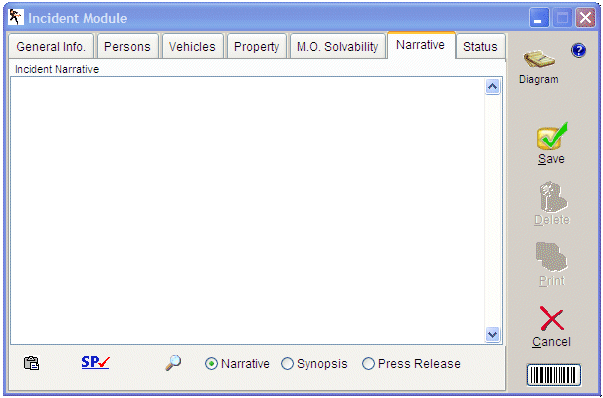
The status page indicates the current review status of the document and any
investigative assignments that have been made. Additionally an unlimited
number of supplemental reports can be associated with each incident.
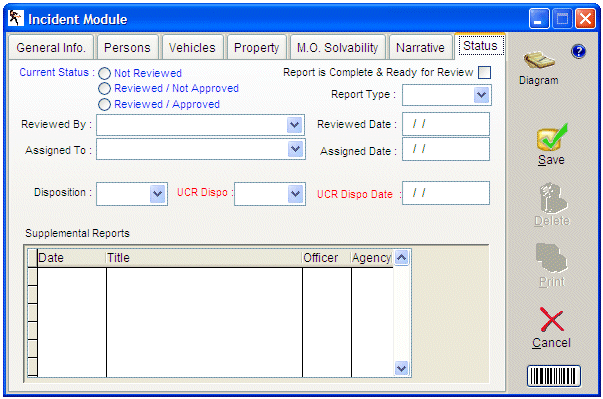
![]()
Copyright © 1999-2021 Crimestar USA, LLC - All Rights Reserved